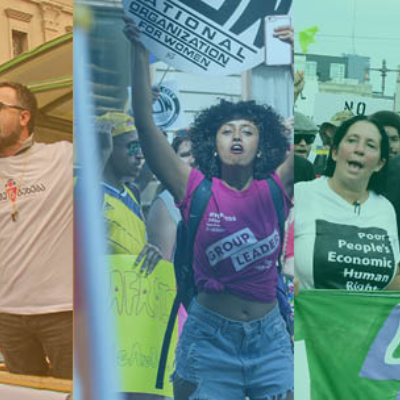
CIVICUS Monitor: Fundamental Rights in the States of the World
CIVICUS, in collaboration with global organizations, investigated and collected data in order to estimate the extent to which human and citizen rights, freedom of expression, demonstration and association are respected in the world. With this information, it creates the CIVICUS Monitor, a tool that observes the state of the civic space of each country, classifying it into five categories according to its state: open, narrowed, obstructed, repressed or closed.
One of the conclusions is that 24 countries have a closed civic space, 38 countries have a repressed space and 49 have one obstructed. Only 43 countries receive an open rating and 42 a narrowed rating. This means that only 3% of the world population lives in an open civic space. More specifically, the data gathered on the right to protest show that 96 countries (out of the 154 countries in this study) have used coercion to suppress protests: arresting protesters, stopping protests, or violence against protesters.
Regarding freedom of expression, the study showed that a large number of States censure it so as not to jeopardize the existing state and economic power, registering that there are 123 affected countries. Globally, the people or groups of people hat are affected the most by state attacks are journalists, human rights defenders, women’s rights groups and defenders, LGBTQI groups (except in Europe and Central Asia) and workers’ rights groups. The censorship methods used by States are varied and consist of: prohibiting the dissemination of information, spreading false information on social networks to dilute the true from the false, blocking social networks, prohibiting or suspending the media, prohibiting the projection of films that do not correspond to the government’s ethics, detaining people who take videos or photos that can be broadcast in public space and thus compromise the situation of the country in question, block the use of VPN applications, prohibit citizens from traveling abroad and thus emit slanderous information about their country of origin.
In conclusion, although the fundamental right of self-determination is not respected by most countries, citizens around the world continue to protest despite the repression. However, CIVICUS has seen significant improvements in respect for human rights in regions around the world, such as defamation laws in Sierra Leone, the Dominican Republic and the Maldives, and the legalization of same-sex marriage in Taiwan. In the past year, CIVICUS Monitor has also documented 11 cases of the release of human rights defenders, including in Azerbaijan and Turkey.
For more information: https://civicus.contentfiles.net/media/assets/file/GlobalReport2019.pdf.

